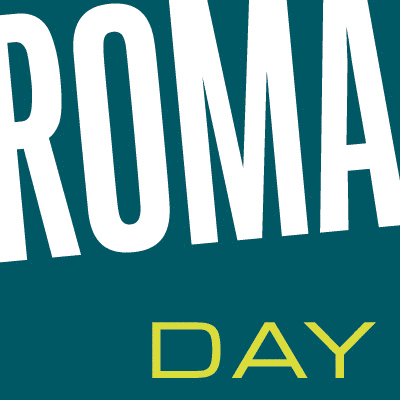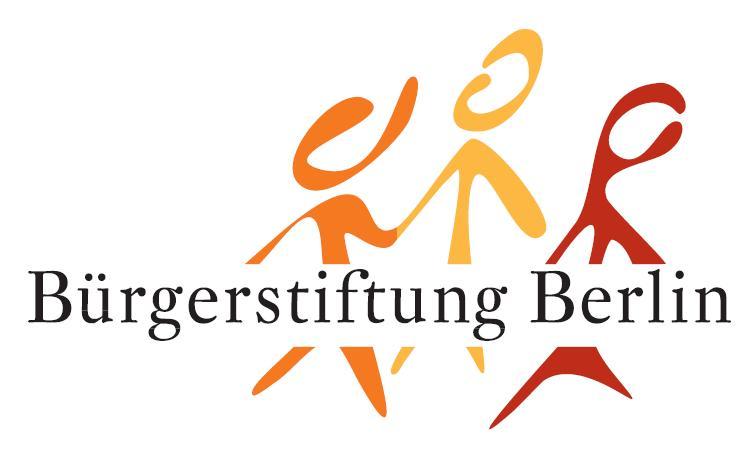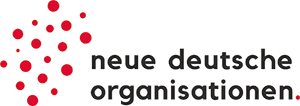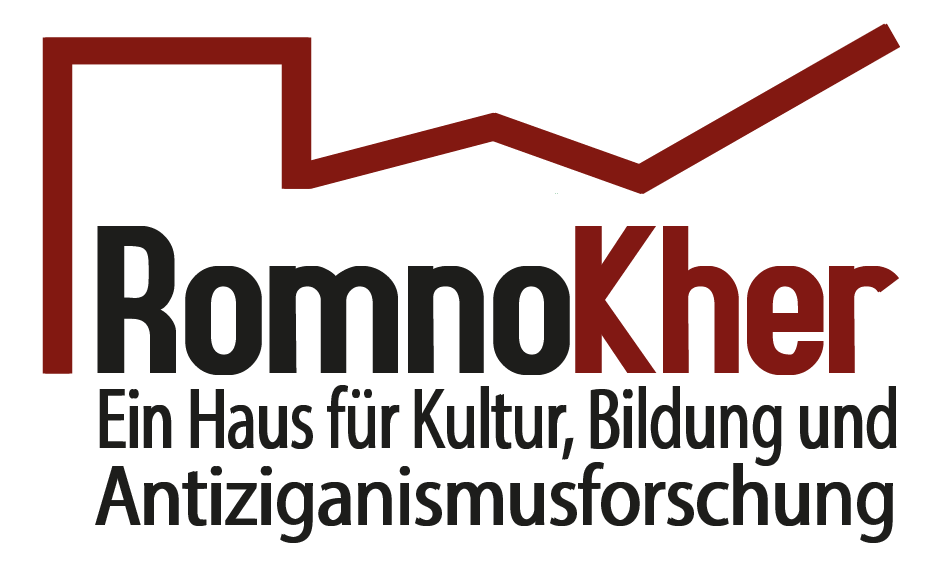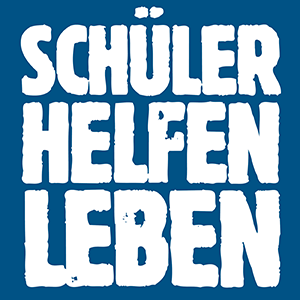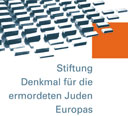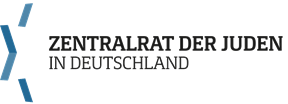Alliance for Solidarity with
the Sinti and Roma of Europe
Who? We are an association of social and cultural organisations who often encounter antiziganism in their work.
What? Antiziganism is virtually never perceived and dealt with in the public, instead it is becoming more widely accepted. However, it is the task of civil society, the media and politics to identify, condemn and combat anti-Roma and Sinti prejudice and discrimination, and to declare solidary with those affected.
How? This appeal reflects our intention to spread awareness of the situation faced by those affected, to shine light on this form of everyday racism and to combat antiziganism.
Members of the Alliance for Solidarity with the Sinti and Roma of Europe
Arbeiterwohlfahrt
Arbeiterwohlfahrt (AWO) is one of the six top umbrella organisations for non-statutory welfare in Germany. Due to its history and socio-political self-conception, AWO is a special kind of welfare organisation. The women and men who have found their way to AWO as members, volunteers, and full-time employees seek to play a part in society as it copes with social problems and tasks and to realise a democratic, social rule of law. AWO’s federal organisation is the amalgamation of all 30 state and district organisations and represents the special political interests of the organisation as a whole at the federal and European levels. AWO maintains more than 13,000 facilities and services in all of Germany’s states.
Arne-Friedrich Foundation
The Arne-Friedrich Foundation is dedicated to the issues of health, education and integration. The focus of the work lies with children and young people. The foundation seeks to help as many children as possible to lead a better life by supporting and launching targeted projects in the areas of poverty, refugees and asylum. For instance, the project ‘Responsibility-Integration-Friendship’ (VIF), in cooperation with the Berlin Civic Foundation, set out to help provide children of refugees and from socially disadvantaged and/or educationally deprived social strata with greater equality of opportunities and promote their integration. The emphasis here was on the acquisition of skills and competencies to improve educational opportunities.
Berlin Civic Foundation
The Berlin Civic Foundation is an independent foundation supported by inhabitants of Berlin who are committed to improving life together. Donations are invested in educational work with children who are disadvantaged due to their social background. The Berlin Civic Foundation is a proud member of the Alliance for Solidarity with Sinti and Roma. Creative methods of education in the form of the »Picture-book cinema for Romani children« are distributed to primary schools in Berlin Neukölln as voluntary helpers regularly go on journeys of imagination with the children – making language learning a piece of cake!
Diakonie Deutschland – Evangelical Federal Association
The deaconry is the social service provided by the evangelical church in Germany – the oldest and largest charitable association in the Federal Republic. Diakonie Deutschland – Evangelical Federal Association is the umbrella organisation for the social work of the evangelical national and free churches as well as the professional associations of various areas of work. The deaconry comprises around 30,000 stationary and ambulatory services such as care homes, hospitals, nurseries, information centres and social stations with 470,000 members of staff and around 700,000 volunteers. Like »Brot für die Welt – Evangelical Development Service«, Diakonie Deutschland – Evangelical Federal Association forms part of the Evangelical Work for Deaconry and Development.
Evangelical Church of Berlin-Brandenburg-Silesian Upper Lusatia
The Evangelical Church of Berlin-Brandenburg-Silesian Upper Lusatia is an association of evangelical Christians across several federal states (Berlin, Brandenburg and Saxony). The Evangelical Church of Berlin-Brandenburg-Silesian Upper Lusatia engages in societal discussion and offers a range of programmes in plural society – in social, religious, educational, political, church and societal domains. It provides church services, pastoral care and counselling, and offers a range of educational programmes in the community and schools, for both young people and adults. The deaconry helps people in need: life, action and faith all belong together. The Evangelical Church of Berlin-Brandenburg-Silesian Upper Lusatia is committed to combatting discrimination and promoting the equality of everyone; we are all God’s beloved creatures.
Freudenberg Foundation
The Freudenberg Foundation’s programs are directed at social inclusion and democratic culture. The foundation is especially active in communities that assume responsibility at the local level in cooperation with civil society. A central area of activity is the involvement of Sinti and Roma as equal partners. For a long time, the Freudenberg Foundation has been putting considerable emphasis on the various Roma and Sinti organisations with which it works to reduce discrimination of Europe’s largest minority and to establish lasting educational opportunities.
Gegen Vergessen – Für Demokratie e. V.
Gegen Vergessen – Für Demokratie e.V. has been combining historical remembrance work with practical engagement for democracy since 1993. More than 2,000 members are involved in 36 regional working groups which carry out over 400 events on National Socialism, SUP injustice and political extremism each year. Gegen Vergessen – Für Demokratie e.V. stands for valued togetherness in which discrimination and intolerant attitudes have no place.
Hildegard Lagrenne Foundation for Education, Inclusion and Participation of Sinti and Roma in Germany
The Hildegard-Lagrenne Foundation (HLS) is the first foundation whose founding members are exclusively Sinti and Roma. It seeks to contribute to improving the educational opportunities of Sinti and Roma in Germany by promoting education and combatting discrimination and antiziganism. HLS also provides information on the topic of Sinti and Roma and develops political recommendations as a member of various working groups. In addition to family education, intercultural and democratic learning, HLS also works actively at the European level with NGOs and other institutions.
Jesuit Refugee Service
The Jesuit Refugee Service assists and advises refugees and migrants and is committed to upholding their rights. Its key areas in Germany include pastoral care and legal assistance in detention pending deportation, counsel in cases of hardship and political work. It supports refugees in the church asylum and engaged communities. The service forms part of the Religious Order of Jesuits and the global Jesuit Refugee Service.
Landesverband Deutscher Sinti und Roma, Landesverband Baden-Württemberg e. V.
Landesverband Deutscher Sinti und Roma Baden-Württemberg e.V. has its roots in the civil rights work of German Sinti and Roma who vehemently drew attention to their discrimination and mistreatment in the 1970s. The charitable association was founded in 1986. The state association primarily seeks to set new standards in education and culture. Its topical priorities, concept and working areas make the state association the only institution in Baden-Württemberg that is able to live up to the claim of adequately representing the civic interests of Sinti and Roma in the state. The state association is supported by the state government of Baden Württemberg. As a civil advisory office, the state association also operates as a dialogue partner with the institution of public life in the majority society.
Landesverband Deutscher Sinti und Roma Berlin-Brandenburg e. V.
Landesverband Deutscher Sinti und Roma Berlin-Brandenburg e.V. was founded in 1978. It is inseparably associated with the name of its long-serving chair Otto Rosenberg and is supported by the Berlin senate administration for education, youth and science.
Lesbian and Gay Association in Germany (LSVD)
The LSVD is committed to the acceptance of LGBTI lifestyles, their legal equality and a comprehensive antidiscrimination legislation. The current issues primarily include equal marriage rights, the nationwide action plan against homophobia and transphobia, an education of diversity, support to rainbow families and engagement for LGBTI refugees. Together with its Hirschfeld-Eddy Foundation, it supports defenders of human rights and numerous projects in the global South and in Eastern Europe.
neue deutsche organisationen
Die neuen deutschen organisationen (ndo) sind ein bundesweites Netzwerk von über 100 Initiativen, die sich für Vielfalt und gegen Rassismus engagieren. Ihre Mitglieder sind überwiegend in Einwandererfamilien groß geworden. Die ndo sind die postmigrantische Bewegung für ein inklusives Deutschland, chancengerecht für alle.
Der Paritätische Gesamtverband
The Paritätischer Gesamtverband is one of six leading associations of non-denominational social welfare in Germany. It is the umbrella association for over 10,000 independent organisations, institutions and groups in social welfare and health. With its 15 state associations and more than 280 district offices, the association supports the work of its member organisations including many migrant organisations. The concept of equality among everyone – parity – is also the principle behind the self-identity of the association: Der Paritätische Gesamtverbund considers itself a supportive society of diverse and independent initiatives, organisations and institutions which represent a broad spectrum of social work. Following the principles of tolerance, openness and diversity, Der Paritätische seeks to be an intermediary between generations and ideologies.
RomnoKher – Centre for culture, education and antiziganism research
RomnoKher is a centre for contact and dialogue between minorities and majorities, based in Mannheim. It is a place where Sinti and Roma can obtain information and advice. It also addresses antiziganism and spreads awareness of discrimination. The aim of RomnoKher is to build a bridge between sciences, civil societies and members of the Sinti and Romani minority, and in doing so contribute to understanding between the majority society and the minority. In April 2015 RomnoKher opened its new office in Berlin, at the Aufbauhaus am Moritzplatz, and thereby set up the further education centre RomAs in cooperation with Aspe e.V. The programmes are based on the latest antiziganism research as well as the issues of inclusion and participation.
RomaTrial e. V.
RomaTrial e. V. is a transcultural organisation run by Roma themselves and an interactive platform which seeks to bring out the complex problems of »gypsy hate« and »gypsy love« on stage, the screen and in the airwaves – and primarily in the mind of society. Our key areas include cultural and political education work for young people and adults, creative theatre and film projects, summer schools as well as seminars on antiziganism and purposeful cultural events.
Schwarzkopf Foundation Young Europe
The non-partisan Schwarzkopf Foundation Young Europe was founded in 1971 by Pauline Schwarzkopf in Hamburg. The purpose of the foundation is to promote the development of young people to become conscious and responsible personalities with the aim of strengthening the European idea, improving international understanding throughout Europe and combatting right-wing extremism, antisemitism and racism.
Schüler Helfen Leben
Schüler Helfen Leben is the first German foundation that was founded by highschool students. It advocates for the rights and participation of children and youth. The foundation supports youth and education projects in Southeastern Europe, Jordan and Syria in the areas of anti-discrimination, youth activism and support for refugees. Once a year, Schüler Helfen Leben organizes the »Social Day« in Germany which brings tens of thousands high school students to work for one day and donate their salary for children and youth in Southeastern Europe, Jordan and Syria and our education projects in Germany.
Foundation Memorial to the Murdered Jews of Europe
The Foundation Memorial to the Murdered Jews of Europe is a federal foundation that was founded on the basis of the resolution of the German Bundestag on 25th June 1999. It manages the Memorial to the Murdered Jews of Europe with the Information Centre, the Memorial to the Homosexuals Persecuted under the National Socialist Regime, Memorial to the Sinti and Roma of Europe Murdered under the National Socialist Regime as well as the Memorial and Information Point for the Victims of National Socialist »Euthanasia« killings. The foundation also seeks to contribute to »ensuring the remembrance of all victims of National Socialism and their appropriate recognition«.
Foundation »Remembrance, Responsibility and Future« (EVZ)
In remembrance of the victims of National Socialist injustice, the foundation »Remembrance, Responsibility and Future« (EVZ) is dedicated to the survivors and is committed to supporting human rights and international understanding. It is the expression of the continued political and moral responsibility of the state, economy and society for the injustice of National Socialism and its victims.
The EVZ foundation provides around 8 million euros each year to international projects in the areas of historical discussion, support for human rights and commitment for the victims of National Socialism.
Central Council of Jews
The Central Council of Jews in Germany is the umbrella organisation for Jewish communities and state associations in Germany and their political representation. It was founded on 19th July 1950 in Frankfurt am Main and has had its head office in Berlin since 1999. It encompasses 23 state associations with 108 communities and around 101,000 members. The Würzburg physician Dr Josef Schuster has been president since November 2014. The main tasks of the Central Council include combatting antisemitism and racism, strengthening Jewish communities, in particular with respect to the challenges of integration, promoting the German-Israeli friendship, safeguarding a dignified culture of remembrance as well as cross-religious dialogue.
